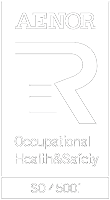The British Approvals Service for Cables (BASEC) is stepping up its scrutiny and testing of cables on the market in the UK, with the active support of the British Cables Association (BCA).
BASEC purchases a range of products from the open market to check conformity. End users also approach BASEC when they experience problems with cable they have purchased. On testing, many of these are found not to comply with British Standards, and some could be considered as dangerous.
As part of its rigorous procedures, BASEC conducts a full range of tests on manufacturers’ products and regularly re-tests them to ensure that manufacturing processes remain robust and consistent.
The number of cases of non-compliant cable on the market in the UK is growing and there are examples of potentially dangerous products being uncovered.
Dr Jeremy Hodge, Chief Executive of BASEC, said: “Non-compliant cables may cause problems for installers during installation, or suffer reduced life expectancy. Worryingly, we are seeing more examples of cables which could be a danger to end users either through electrocution or fire.” He feels that contractors are not looking at the risks inherent in installing faulty cable to the people, premises or their own businesses. This issue remains a priority for BASEC who is bringing this to the attention of specifiers and key organisations in the cabling industry.
One recent example discovered by BASEC while ‘mystery shopping’ was a cable claiming to be a heat resistance flex, commonly used in lighting a pplications. On heat ageing both the insulation on the live core and the sheathing material became brittle. In use, this could result in a short circuit, fire or electrocution.
Another example brought to BASEC’s attention is a “fire performance cable” claiming to comply with BS 5839-1 requirements. Testing revealed very poor fire performance, and conductors made of aluminium. BASEC is still dealing with the case.
Dr Hodge said: “This is a classic example where an unscrupulous manufacturer has deliberately made a cable looking like the real thing but without the required characteristics. This cable is dangerous and if installed it needs to be removed and replaced urgently.
“We are still tracking down the origin of this cable and don’t know yet where it might have been installed, but it is on the worldwide market. Finding where such cables come from can be difficult, particularly as they often come from overseas.”
Specifiers and end users are encouraged to always ask for BASEC approved cable to check for the “BASEC” marking, and to report any suspicious cable.
The British Cables Association (BCA) is the trade association for British Manufacturers and Associate Companies manufacturing insulated cables, wires and accessories. It represents its members on relevant major policy issues to promote the interests of UK cables and associated businesses throughout Europe and world-wide markets.










